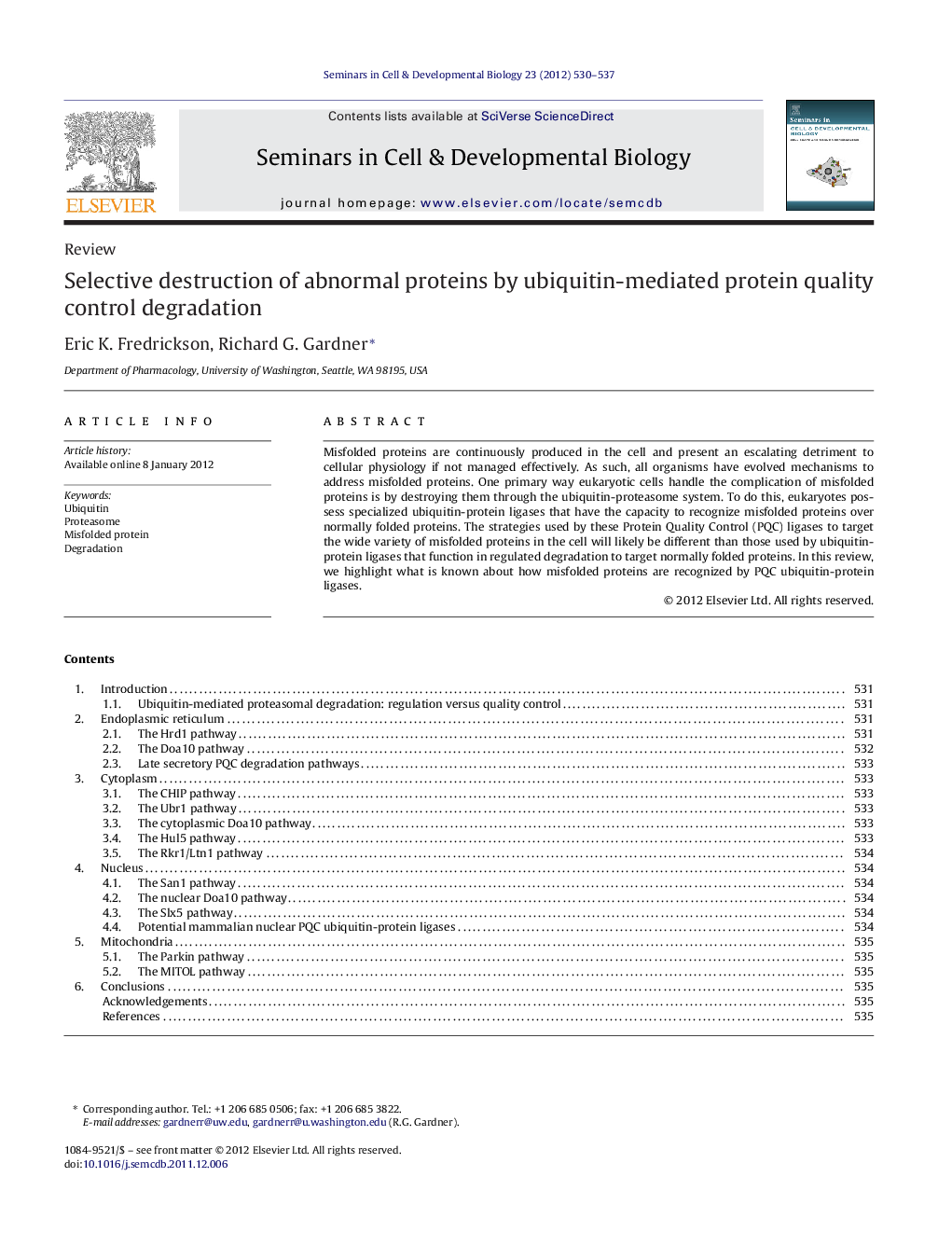| Article ID | Journal | Published Year | Pages | File Type |
|---|---|---|---|---|
| 2202702 | Seminars in Cell & Developmental Biology | 2012 | 8 Pages |
Misfolded proteins are continuously produced in the cell and present an escalating detriment to cellular physiology if not managed effectively. As such, all organisms have evolved mechanisms to address misfolded proteins. One primary way eukaryotic cells handle the complication of misfolded proteins is by destroying them through the ubiquitin-proteasome system. To do this, eukaryotes possess specialized ubiquitin-protein ligases that have the capacity to recognize misfolded proteins over normally folded proteins. The strategies used by these Protein Quality Control (PQC) ligases to target the wide variety of misfolded proteins in the cell will likely be different than those used by ubiquitin-protein ligases that function in regulated degradation to target normally folded proteins. In this review, we highlight what is known about how misfolded proteins are recognized by PQC ubiquitin-protein ligases.
